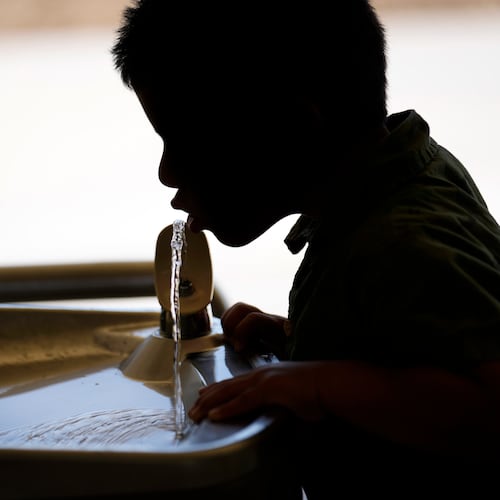Four candidates vying for two seats on the Atlanta school board agree on at least one thing.
Atlanta Public Schools needs to do a better job of communicating with families and including them in decision-making.
On Nov. 30, voters will decide two runoff races for the Atlanta Board of Education.
Incumbent Aretta Baldon faces Keisha Carey in a race to represent central Atlanta’s District 2. Tamara Jones and Kanesha Venning, both newcomers, are squaring off for the At-large Seat 7.
As they campaign for a spot leading the state’s seventh-largest district, one priority keeps popping up.
“I want more momentum around… increasing parent engagement on a school level and district level,” said Baldon, 48, a freelance photographer and marketing consultant. “If we can all jump in, the sky’s the limit.”
Credit: Handout
Credit: Handout
Baldon was first elected in 2019, beating Carey and seven other challengers, in a special election to fill a two-year term. Should she win again, she’ll be the sixth incumbent re-elected to the board this year.
Baldon said she’s proud of how APS has navigated the COVID-19 pandemic and focused on students’ academic and mental health needs. She also led the committee that recommended Joseph Emerson Brown Middle School be renamed Herman J. Russell West End Academy.
As the board debated how to address struggling schools, she advocated for more accountability. The work resulted in setting a three-year time frame for schools to improve before the superintendent steps in with a “high-impact intervention.”
“I want a sense of urgency and intentionality around doing what’s right for our children,” Baldon said.
Credit: Handout
Credit: Handout
Carey, 50, narrowly lost a 2017 runoff election for the same seat. She said she’s running again because she wants to bring more transparency and restore trust by collaborating with parents, students and staff.
“The district deserves a public education representative that is visible and available in the community,” said Carey, who works in a corporate position for T-Mobile.
APS must improve how it connects with elderly guardians, who sometimes don’t use computers, she said.
Carey said she’ll work to address the district’s “long history of inequities” and academic achievement gaps among students. She’d like to see APS build an entrepreneurship program to teach students how to run their own business.
The At-large Seat 7 is held by Kandis Wood Jackson, one of three incumbents who did not seek re-election. The two candidates seeking that spot have both raised just over $30,000 for their campaigns.
Jones, 53, works in architecture and urban planning and is the mother of an APS middle schooler.
Venning, 41, is the executive director of HEY! Helping Empower Youth, an Atlanta nonprofit that uses a STEM-based curriculum to teach leadership and other skills.
Credit: Handout
Credit: Handout
Jones said she’s served on school and district committees under four superintendents.
“I’ve seen some successes in engaging families but more often failures,” she said. “It is not a superintendent issue. It is a board issue.”
She said the board needs to utilize governance teams that support individual schools and geographical groups of schools. The parents, teachers and community members who serve on those teams should provide advice and input.
”We have to bring everything out into the open, because the way that the board has historically engaged constituents is kind of haphazard,” she said.
Jones said she’ll also focus on literacy and developing stronger partnerships with the city of Atlanta as well as Fulton and DeKalb counties.
Credit: Handout
Credit: Handout
Venning said the district needs to communicate before key decisions. She pointed to the outcry last spring over a plan to start high school classes earlier, a move the district rescinded after conducting surveys.
More focus must also be placed supporting students outside as well as inside the classroom, Venning said.
“When I’m hungry, when I’m tired, when my personal life... is in disarray, sometimes it’s hard for me to show up as my best self,” she said.
Venning said students’ needs vary. There are schools on the northside, in more affluent neighborhoods, that are overcrowded. And there are schools on the south and west sides where many students live in poverty.
“I think the biggest challenge is that APS is also a microcosm of what’s happening in the city, and we still have a tale of two school districts,” she said.
About the Author
Keep Reading
The Latest
Featured





